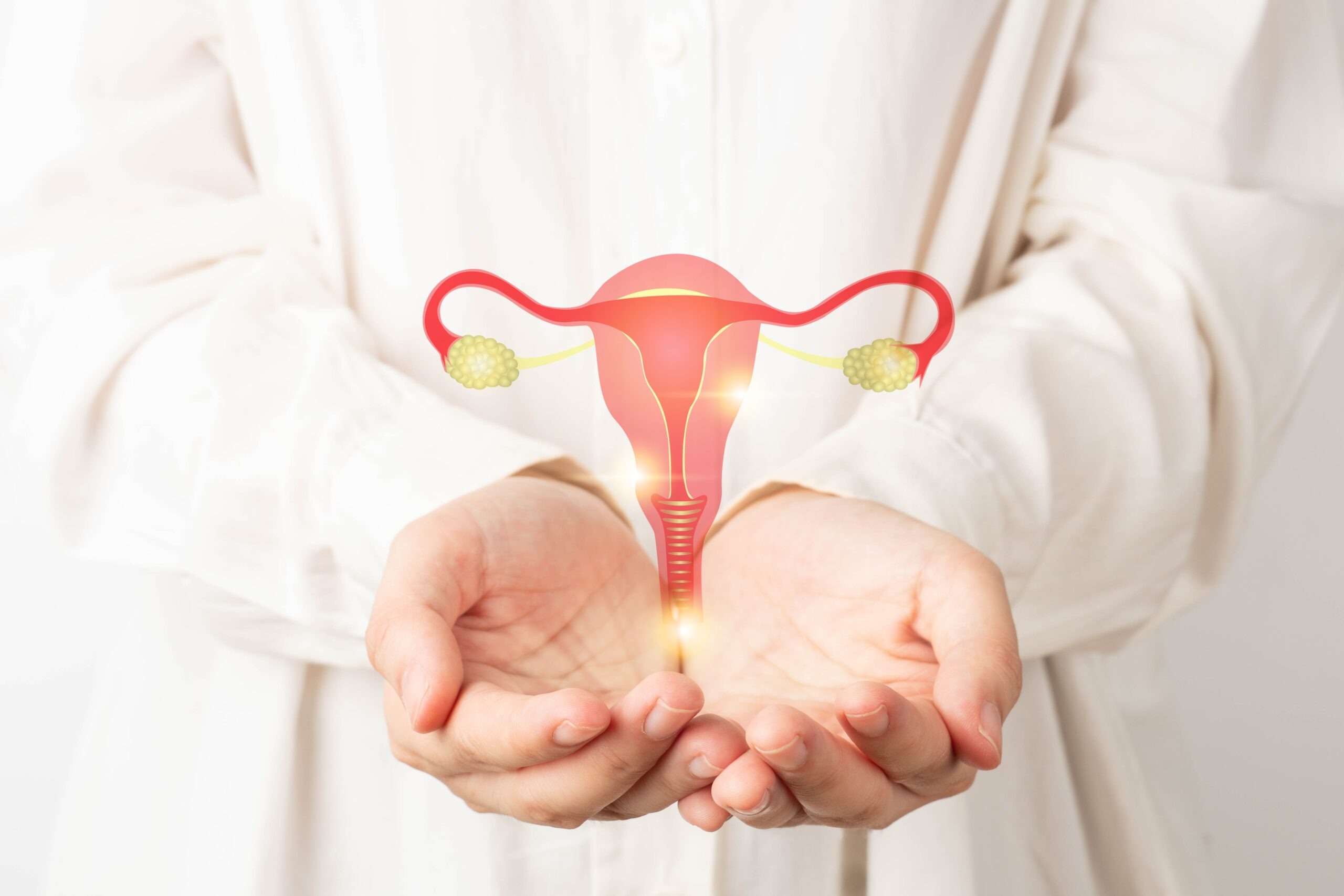Polycystic Ovary Disease (PCOD): Understanding the Condition
PCOD, also known as Polycystic Ovary Syndrome (PCOS), is a hormonal disorder that affects women of reproductive age. It is characterized by the presence of small cysts on the ovaries, hormonal imbalances, and irregular periods.

Key Features of PCOD:
- Ovarian Cysts: Small cysts form on the ovaries, which can interfere with ovulation and fertility.
- Hormonal Imbalance: Elevated levels of androgens (male hormones) lead to symptoms like:
- Excess facial/body hair
- Acne
- Thinning hair on the scalp
- Irregular Periods: Menstrual cycles may be unpredictable, delayed, or may stop altogether.
Why Does PCOD Happen?
While the exact cause of PCOD remains unclear, several factors are believed to contribute to the condition:
Hormonal Imbalance:
- High levels of androgens (male hormones) disrupt the normal ovulation process, causing irregular periods and fertility issues.
Insulin Resistance:
- Many women with PCOD have insulin resistance, meaning their bodies don’t respond well to insulin. This leads to higher levels of both insulin and androgens, contributing to symptoms like acne, weight gain, and excess hair growth.
Genetics:
- PCOD tends to run in families, suggesting a genetic predisposition to developing the condition.
Low-grade Inflammation:
- Chronic low-grade inflammation in the body worsens insulin resistance and contributes to the development of PCOD.
Lifestyle Factors:
- Obesity, a poor diet, and a sedentary lifestyle can exacerbate symptoms, particularly insulin resistance.
Environmental Factors:
- Exposure to environmental toxins may contribute to the onset of PCOD, although further research is needed.
Management and Treatment Options for PCOD
For many women, lifestyle changes such as weight loss, diet improvements, and regular exercise can significantly reduce symptoms and improve health outcomes. However, in cases where the condition is more severe, lifestyle changes alone may not be enough to fully reverse PCOD. In such cases, additional treatments may be necessary:
Medications:
- Hormonal Birth Control: Used to regulate menstrual cycles and reduce symptoms like acne and excess hair growth.
- Metformin: Improves insulin sensitivity, helping with weight management and menstrual regularity.
- Anti-androgen Medications: Help reduce excess hair growth and acne by blocking male hormones.
Fertility Treatments:
- If fertility is a concern, medications like Clomid or letrozole may help stimulate ovulation.
- In more severe cases, in vitro fertilization (IVF) may be considered.
Surgical Interventions:
- In rare cases, surgical procedures like ovarian drilling may be used to reduce the size of cysts and improve ovulation.
The Role of Lifestyle Changes in Managing PCOD
- Weight Loss: Losing even a small amount of weight can significantly improve insulin sensitivity and hormonal balance.
- Dietary Adjustments: Focus on a balanced, low-glycemic diet to help regulate blood sugar and insulin levels. Include plenty of vegetables, lean proteins, healthy fats, and whole grains.
- Exercise: Regular physical activity helps manage insulin resistance and supports weight loss.
- Stress Management: Since stress can worsen hormonal imbalances, techniques such as yoga, meditation, or mindfulness can help manage symptoms.
Conclusion
PCOD is a multifaceted condition influenced by hormonal imbalances, insulin resistance, genetics, and lifestyle factors. While it may not always be fully reversible, lifestyle changes and medical interventions can help manage symptoms and improve overall quality of life. If you are experiencing symptoms of PCOD, consult a healthcare professional for personalized treatment and management options.

